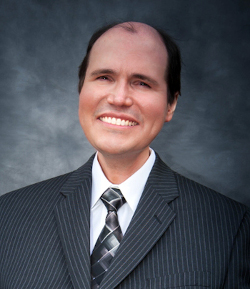Do I really need a trust?

Maybe you’ve heard the term “trust” at a cocktail party, or maybe your friends have told you that you needed a “trust.” But is that true? Do you really need a trust? The answer is: maybe. What you definitely need if you are a small business owner or a corporate employee, however, is an “estate plan.”
Planning for what happens to your business, assets, and debts when you retire and thereafter can be a stressful topic. From the fear of uncertainty to the difficulty inherent in making decisions for situations where you don't have control, it can be daunting to establish a succession plan or an estate plan on your own.
Some companies offer standard fill-in-the-blank forms, and it might seem like these could be sufficient if you don't have any substantial assets to your name. If, however, you have a business, or real estate, or special situations, then the off-the-shelf forms are likely not what you need. Instead, consider retaining a competent estate planning attorney to assist with these complicated decisions.
Succession and estate planning is more than just dividing monetary assets. Many times it also involves passing down core values (religion, education, hard work, etc.) to those who succeed you in a way that meaningfully preserves your legacy. Without an estate plan, State law will dictate how your assets are allocated, and no consideration will typically be given to your wishes. In cases where you become disabled and unable to handle your own affairs, a court appointee will sign for you in all matters regarding your business and other assets. Sometimes this appointee may be a family member. But where disputes arise between your heirs, a stranger appointed by the government (i.e., the court), not your family, may control how your assets are managed.
An estate plan is not free, and structuring the estate plan of your choice does have an upfront cost. But if you don't want strangers managing your estate, the cost may well be worth it. The right time to create an estate plan is now, when you are in full control over expressing how you want your estate to be handled during your life and beyond. Creating an estate plan can be one of the wisest steps you can take for yourself and the ones you love.
Summarized below are some of the components of an estate plan. Because each component serves a different purpose, and each component comes at a cost, you should have an attorney advise you which components meet your needs.
